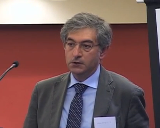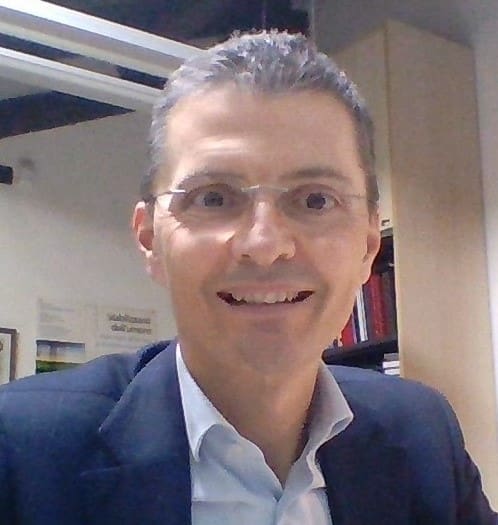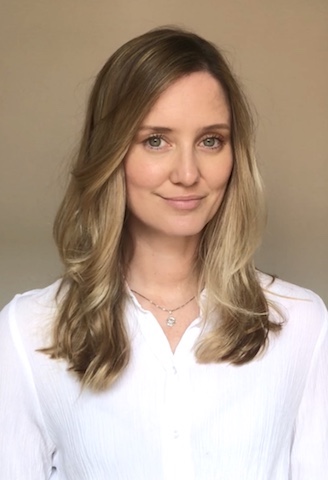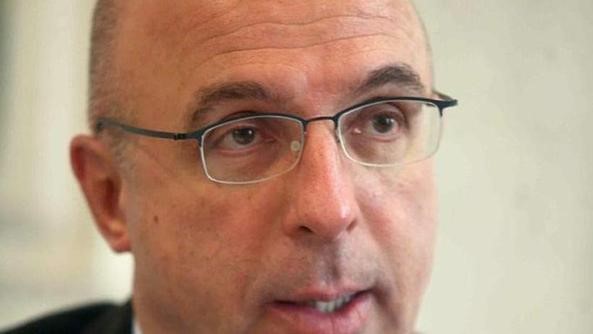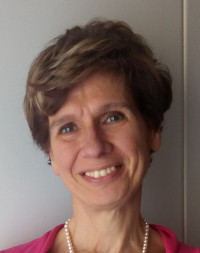Studying at the University of Verona
Here you can find information on the organisational aspects of the Programme, lecture timetables, learning activities and useful contact details for your time at the University, from enrolment to graduation.
Academic calendar
The academic calendar shows the deadlines and scheduled events that are relevant to students, teaching and technical-administrative staff of the University. Public holidays and University closures are also indicated. The academic year normally begins on 1 October each year and ends on 30 September of the following year.
Course calendar
The Academic Calendar sets out the degree programme lecture and exam timetables, as well as the relevant university closure dates..
| Period | From | To |
|---|---|---|
| TERP 3A1S | Oct 1, 2019 | Nov 8, 2019 |
| TERP 2A1S | Oct 7, 2019 | Dec 6, 2019 |
| TERP 1A1S | Oct 9, 2019 | Dec 13, 2019 |
| TERP 1A2S - 1 periodo | Feb 3, 2020 | Mar 6, 2020 |
| TERP 3A2S - 1 periodo | Feb 3, 2020 | Mar 13, 2020 |
| TERP 2A2S | Mar 9, 2020 | May 15, 2020 |
| TERP 1A2S - 2 periodo | Apr 8, 2020 | May 24, 2020 |
| TERP 3A2S - 2 periodo | May 4, 2020 | May 8, 2020 |
| Session | From | To |
|---|---|---|
| TERP ROV SESSIONE INVERNALE 2 ANNO | Dec 16, 2019 | Jan 24, 2020 |
| TERP ROV SESSIONE INVERNALE (1 e 3 ANNO) | Jan 7, 2020 | Jan 31, 2020 |
| TERP ROV SESSIONE ESTIVA 2 ANNO | May 25, 2020 | Jun 26, 2020 |
| TERP ROV SESSIONE ESTIVA 3 ANNO | Jul 1, 2020 | Jul 31, 2020 |
| TERP ROV SESSIONE ESTIVA 1 ANNO | Jul 6, 2020 | Jul 31, 2020 |
| TERP ROV SESSIONE AUTUNNALE | Sep 1, 2020 | Sep 30, 2020 |
| Session | From | To |
|---|---|---|
| TERP SESSIONE AUTUNNALE | Nov 1, 2020 | Dec 31, 2020 |
| TERP SESSIONE PRIMAVERILE | Mar 1, 2021 | Apr 30, 2021 |
| Period | From | To |
|---|---|---|
| FESTIVITA' OGNISSANTI | Nov 1, 2019 | Nov 1, 2019 |
| FESTIVITA' IMMACOLATA CONCEZIONE | Dec 8, 2019 | Dec 8, 2019 |
| VACANZE DI NATALE | Dec 24, 2019 | Jan 6, 2020 |
| VACANZE DI PASQUA | Apr 10, 2020 | Apr 15, 2020 |
| FESTA DELLA LIBERAZIONE | Apr 25, 2020 | Apr 25, 2020 |
| Festa del Lavoro | May 1, 2020 | May 1, 2020 |
| FESTA DELLA REPUBBLICA | Jun 2, 2020 | Jun 2, 2020 |
| FESTA S. PATRONO | Aug 5, 2020 | Aug 5, 2020 |
| Description | Period | From | To |
|---|---|---|---|
| TERP 3^ anno - 1^semestre | TERP 3^ anno - 1^semestre | Nov 11, 2019 | Dec 13, 2019 |
| TERP 2^ anno - 1^semestre | TERP 2^ anno - 1^semestre | Jan 27, 2020 | Mar 6, 2020 |
| TERP 1^ anno - 2^semestre (1 periodo) | TERP 1^ anno - 2^semestre (1 periodo) | Mar 9, 2020 | Apr 3, 2020 |
| TERP 3^ anno - 2^semestre (1 periodo) | TERP 3^ anno - 2^semestre (1 periodo) | Mar 16, 2020 | Apr 30, 2020 |
| TERP 3^ anno - 2^semestre (2 periodo) | TERP 3^ anno - 2^semestre (2 periodo) | May 11, 2020 | Jun 19, 2020 |
| TERP 1^ anno - 2^semestre (2 periodo) | TERP 1^ anno - 2^semestre (2 periodo) | May 25, 2020 | Jun 26, 2020 |
| TERP 2^ anno - 2^semestre (1 periodo) | TERP 2^ anno - 2^semestre (1 periodo) | Jun 29, 2020 | Jul 31, 2020 |
| TERP 2^ anno - 2^semestre (2 periodo) | TERP 2^ anno - 2^semestre (2 periodo) | Sep 1, 2020 | Sep 30, 2020 |
Exam calendar
Exam dates and rounds are managed by the relevant Medicine Teaching and Student Services Unit.
To view all the exam sessions available, please use the Exam dashboard on ESSE3.
If you forgot your login details or have problems logging in, please contact the relevant IT HelpDesk, or check the login details recovery web page.
Should you have any doubts or questions, please check the Enrollment FAQs
Academic staff
 loretta.berti@univr.it
loretta.berti@univr.it
 borghesi.a@mail.apss.tn.it
borghesi.a@mail.apss.tn.it
 silvia.chiesa@apss.tn.it
silvia.chiesa@apss.tn.it
 drgasp@tin.it
drgasp@tin.it
 enrica.latterini@apss.tn.it
enrica.latterini@apss.tn.it
 renata.lazzeri@apss.tn.it
renata.lazzeri@apss.tn.it
 alessandra.mamo@univr.it
alessandra.mamo@univr.it
 anja.meyer@univr.it
anja.meyer@univr.it
 rocco.micciolo@economia.unitn.it
rocco.micciolo@economia.unitn.it
Study Plan
The Study Plan includes all modules, teaching and learning activities that each student will need to undertake during their time at the University.
Please select your Study Plan based on your enrollment year.
1° Year
| Modules | Credits | TAF | SSD |
|---|
2° Year activated in the A.Y. 2020/2021
| Modules | Credits | TAF | SSD |
|---|
3° Year activated in the A.Y. 2021/2022
| Modules | Credits | TAF | SSD |
|---|
| Modules | Credits | TAF | SSD |
|---|
| Modules | Credits | TAF | SSD |
|---|
| Modules | Credits | TAF | SSD |
|---|
Legend | Type of training activity (TTA)
TAF (Type of Educational Activity) All courses and activities are classified into different types of educational activities, indicated by a letter.
Professional Laboratories (3rd year) (2021/2022)
Teaching code
4S000205
Teacher
Coordinator
Credits
1
Language
Italian
Scientific Disciplinary Sector (SSD)
MED/48 - NURSING IN NEUROPSYCHIATRY AND REHABILITATION
Period
1° e 2° semestre (corsi annuali) PROFESSIONI SANITARIE dal Oct 1, 2021 al Sep 30, 2022.
Learning outcomes
The professionalizing laboratories are essential learning experiences that anticipate the clinical training; offer students the opportunity to experiment in applying the acquired knowledge and theoretical principles, in a safe and controlled environment. The goal is to allow the student to experiment in virtual care settings, without putting the safety of real patients at risk. They aim to develop both practical skills (through simulations in plausible clinical settings, with the use of simulators) and other transversal skills (care, relational, communication, problem solving, critical thinking). They are carried out in small groups throughout the academic year (I - II semester), under the guidance of tutors. The laboratory aims to promote the acquisition of concepts concerning rehabilitation groups and the interventions proposed to family members in their planning and implementation.
Program
Rehabilitate through group activities
Types of rehabilitation groups
How to design a rehabilitation group
The composition of the group
Group management rules
Sharing agreement for participation into a group
The role of conductor and co-conductor
The cargiver in the family and the management of family workload
What is Expressed Emotionality and how to manage it
The expressed and unexpressed needs of families
Collaboration between families and mental health services
The role of families in rehabilitation project
Psychoeducational interventions for family members
Family support groups
Prevention activities and interventions for children of psychiatric patients
Examination Methods
The laboratory does not provide a final exam
Career prospects
Module/Programme news
News for students
There you will find information, resources and services useful during your time at the University (Student’s exam record, your study plan on ESSE3, Distance Learning courses, university email account, office forms, administrative procedures, etc.). You can log into MyUnivr with your GIA login details: only in this way will you be able to receive notification of all the notices from your teachers and your secretariat via email and soon also via the Univr app.
Orario lezioni
Documents
| Title | Info File |
|---|---|
|
|
pdf, it, 66 KB, 22/09/23 |
|
|
pdf, it, 293 KB, 12/04/24 |
|
|
pdf, it, 259 KB, 10/04/24 |
|
|
pdf, it, 32 KB, 05/03/24 |
|
|
pdf, it, 1453 KB, 15/02/24 |
Gestione carriere
Appelli d'esame
AVVISO IMPORTANTE
Documents
| Title | Info File |
|---|---|
|
|
pdf, it, 313 KB, 02/10/23 |
Student login and resources
Attività Seminariali/a scelta dello studente
Attività Seminariali/a scelta dello studente
Tirocinio professionalizzante
Documents
| Title | Info File |
|---|---|
|
|
pdf, it, 146 KB, 15/02/24 |
 0461-364187 364174 o 0464 582475
0461-364187 364174 o 0464 582475
